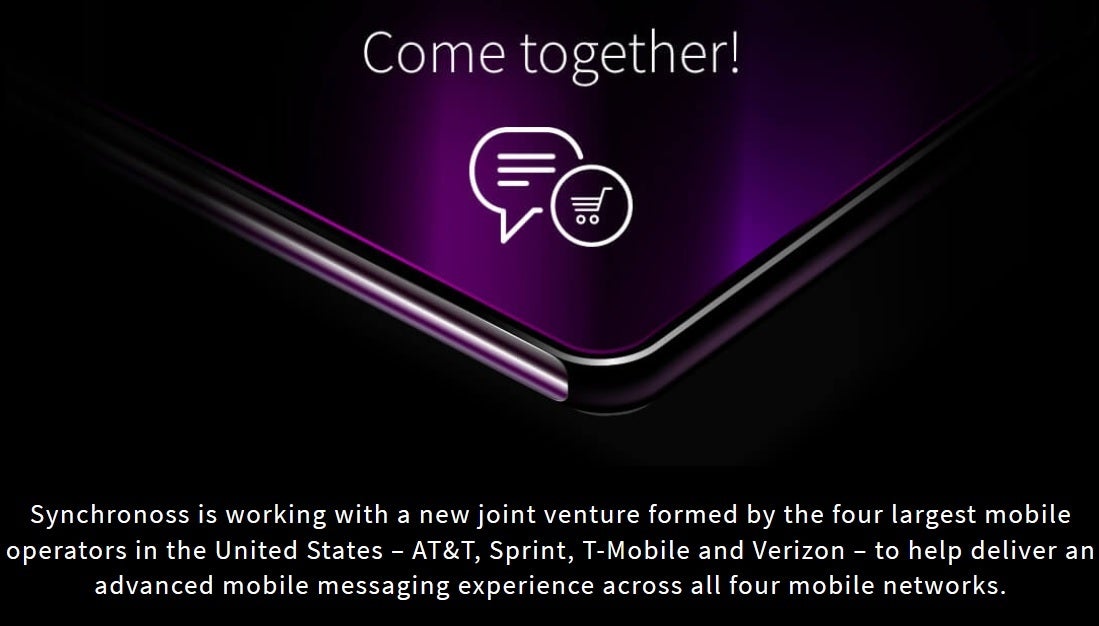Major U.S. carriers take their first step toward launching RCS next year

You probably couldn't get the CEOs of the four major U.S. carriers (Verizon, AT&T, T-Mobile, and Sprint) to agree on a place to meet for lunch. Yet, late last month the quartet agreed to start the Cross Carrier Messaging Initiative (CCMI) that will launch an Android app next year to enable Android phones with Rich Communication Service (RCS). The next generation of wireless messaging will use the carriers' data networks instead of cellular. With RCS, messages of up to 8,000 characters in length can be sent compared to the 160 character cap that SMS/Text messages have.
RCS will help drive some revenue to the four major U.S. carriers
The CCMI took a big step forward today when Synchronoss Technologies announced that it is working with the group to "deliver an advanced mobile messaging experience across all four mobile networks." The platform, based on RCS, will be as ambitious as previously mentioned. Businesses will be able to communicate directly with customers via one-to-one messaging and through interactive multimedia communications. Consumers will communicate with their favorite brands without having to switch to different apps to do so, and will also have the ability to take advantage of advanced multimedia capabilities.

The Cross Carrier Messaging Initiative has chosen Synchronoss to supply its advanced messaging platform for RCS services next year
Synchronoss President and CEO Glenn Lurie said that there was a fierce battle for this contract, and it will be partnering with WIT technology to bring RCS to Android in the U.S. It should be pointed out that Google, which brought RCS to parts of Europe earlier this year by doing an end-around the carriers in the U.K. and France, is not involved in CCMI. It recently enabled RCS on Pixel 4 models running on its Google Fi MVNO. Synchronoss notes that SMS/Text has fallen behind third-party messaging apps like Facebook Messenger, Snapchat and others, costing carriers revenue and the ability to take advantage of other monetization opportunities. Wanting to collect these revenues themselves without Google getting its fingers in the pie could be one reason why the carriers announced the CCMI when it did. Some had expected Google to repeat its successful European end-around in the states. As it is, some Android users have been able to take advantage of a hack that allows them to enable RCS through the Android Messages app.
Lurie also stated that "the cross-carrier messaging initiative has the potential to transition the wireless ecosystem to a new, innovative messaging service that will power new experiences – allowing U.S. wireless customers to manage their digital life and enabling efficient and convenient interactions with their favorite brands from a single application." The executive added that "the launch of this initiative signals the beginning of the era of advanced messaging in the U.S. that will begin to unite communication, services, and entertainment in entirely new ways. Synchronoss, along with our partner WIT Software, has seen first-hand how powerful advanced messaging can be around the globe, and we believe there is tremendous potential for this in the U.S. on multiple fronts. This collaboration exemplifies how working together can enhance the entire mobile ecosystem."
Follow us on Google News













Things that are NOT allowed:
To help keep our community safe and free from spam, we apply temporary limits to newly created accounts: